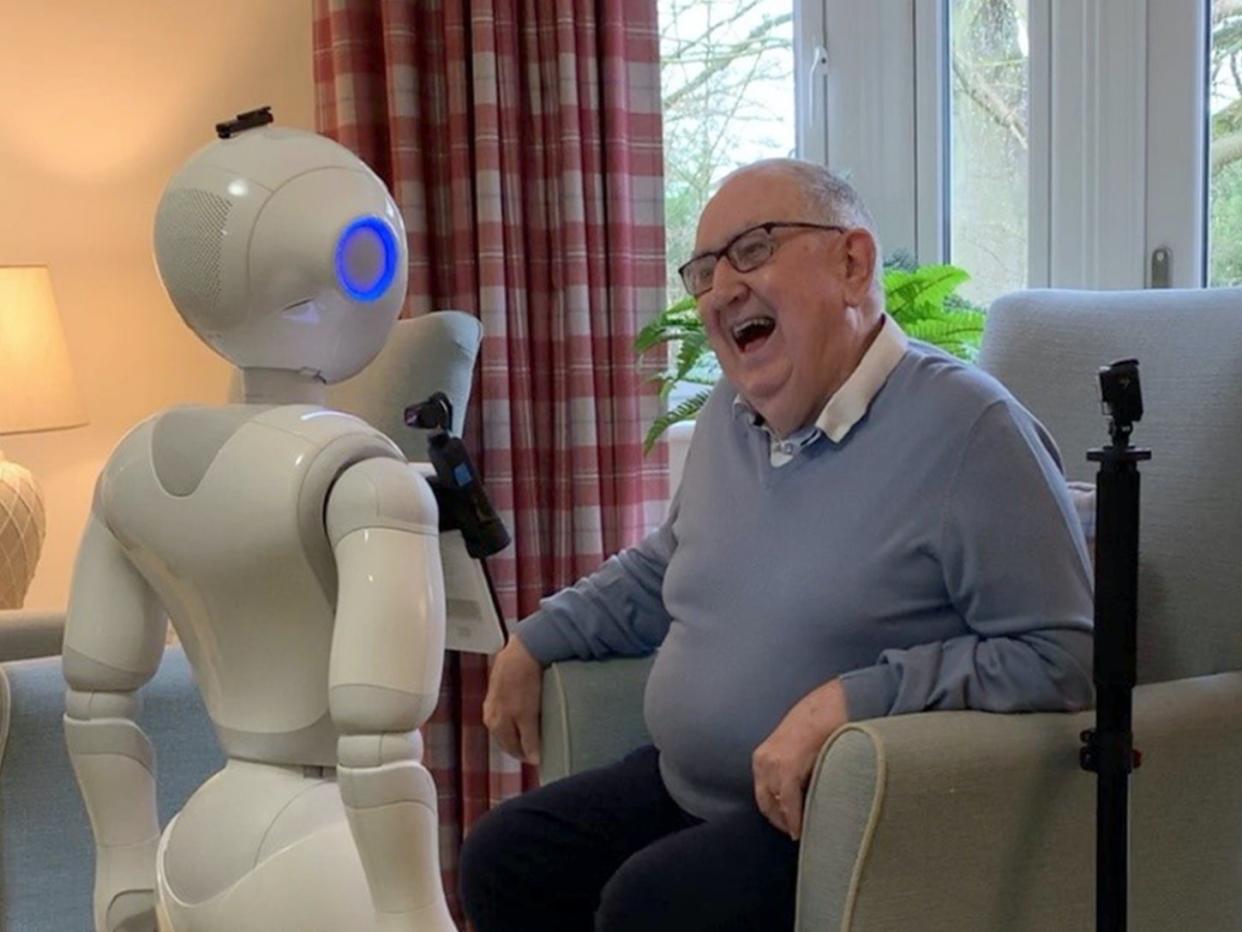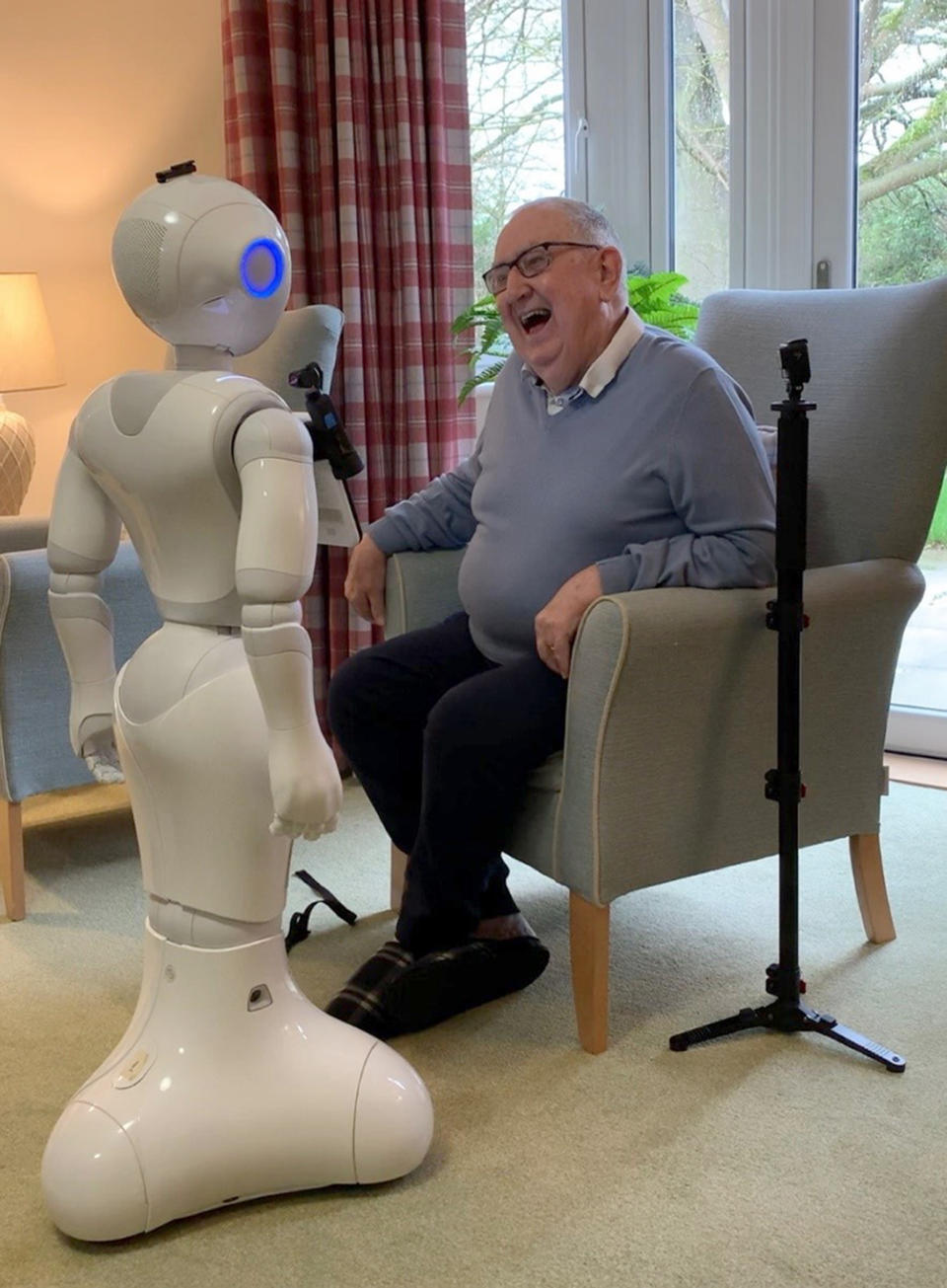Talking robots could be used in UK care homes to help combat loneliness and improve mental health

Robots could be introduced to care homes across the UK after a study showed they can improve mental health and have the potential to reduce loneliness in older people.
The robots, called “Pepper”, can move independently and gesture with robotic arms and hands. They are also designed to be “culturally competent”, which means that they have the ability to learn about the interests and backgrounds of care home residents.
Scientists say this allows them to start basic conversations, play a person’s favourite music, teach languages and offer practical help including medicine reminders.
The study, involving the University of Bedfordshire, Middlesex University and Advinia Health Care – one of the largest providers of dementia care in the UK – is the first time researchers have collaborated to explore the possibility of developing culturally competent robots.
The robots were tested in care homes across the UK and researchers found that older adults who used them for up to 18 hours across two weeks saw a significant improvement in their mental health.
After two weeks of using the system there was also a small but positive impact on loneliness severity among users, and the system had a significant positive impact on participants' attitudes towards robots.
Participants said that some of the robots’ limitations included their conversations feeling superficial and lacking “richness”. They also said Pepper lacked personalisation and that its head movements and hand gestures were often distracting.
The study's lead author, Dr Chris Papadopoulos from the University of Bedfordshire, said the research was “ground-breaking”.
“The results show that using the Caresses artificial intelligence in robots such as Pepper has real potential benefit to a world that is witnessing more people living longer with fewer people to look after them,” he said.

“Poor mental health and loneliness are significant health concerns and we have demonstrated that robots can help alleviate these.”
Irena Papadopoulos, professor of transcultural health and nursing at Middlesex University, added that the trial was not intended to explore the replacement of human carers with robots, but to help combat loneliness when staff do not have enough time to keep residents company.
“Socially assistive, intelligent robots for older people could relieve some pressures in hospitals and care homes,” she said.
“No-one is talking about replacing humans – the evaluation demonstrates that we are a long way from doing that – but it also reveals that robots could support existing care systems,” she said.
Dr Sanjeev Kanoria, surgeon, founder and chairman of Advinia Health Care, said that it hopes to introduce the robots into more of its care homes.
“This is the only artificial intelligence that can enable an open-ended communication with a robot and a vulnerable resident,” he said.
“We are working towards implementing this into routine care of vulnerable people to reduce anxiety and loneliness and provide continuity of care.
“The robot was tested in Advinia's care homes in the UK. Now we are working towards bringing the robot into routine care, so it can be of real help to older adults and their families.”
Read more
Coronavirus: Robot cleaners deployed in bid to keep city centre Covid-free

